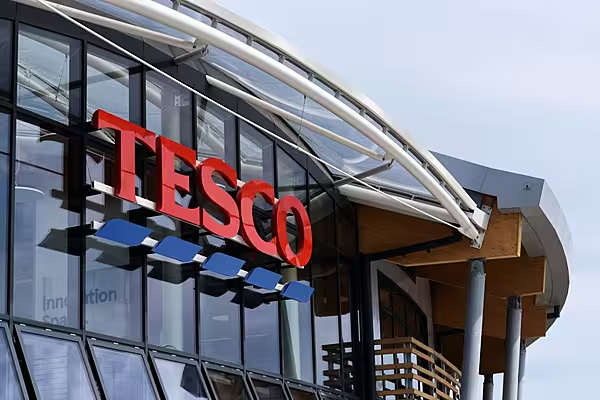The UK’s four largest supermarkets face a further 18 months of ebbing profits and escalating price wars if they can’t find better ways to battle discounters, Moody’s Investors Service forecasts.
While margins at Tesco, Sainsbury's, Morrisons and Asda may stabilise, further rounds of price cuts will likely preclude any rebound in profitability, the credit-rating provider said in a report Thursday. Moody’s also predicts that food-price deflation means same-store sales will keep falling for at least another year.
“There’s a risk that some market participants will continue to try to defend market share by further substantial price cuts,” analyst Sven Reinke said in the report. Asda, with the support of Wal-Mart, is the only grocer that can afford to make more reductions, he said, although the world’s largest retailer has said the UK is its most challenging market.
All four of the UK’s largest supermarkets have put lower prices at the heart of their efforts to stop more customers defecting to discounters Aldi and Lidl. This has come at the expense of profit margins, which have sunk to multi-year lows at Tesco and Morrison. Revenue is also shrinking as shoppers pay less for their groceries, with Sainsbury reporting a sixth straight drop in quarterly same-store sales Wednesday.
In shaping future strategy, UK grocers should accept the reality of lower market share, Reinke said by phone.
“It took supermarkets a long time to stop the race for space - facing up to this market-share reality might take them a long time as well,” he said.
While grocers’ price cuts have slowed the march of Aldi and Lidl, Moody’s forecasts that the two discounters will still control 12 per cent to 15 per cent of the market by 2020, up from a current combined share of about 9.3 per cent.
In January, the scale of the turnaround facing Tesco led Moody’s to cut the market leader to junk. The company has a Baa2 rating on Morrison, equivalent to two levels above junk.
News by Bloomberg, edited by ESM













